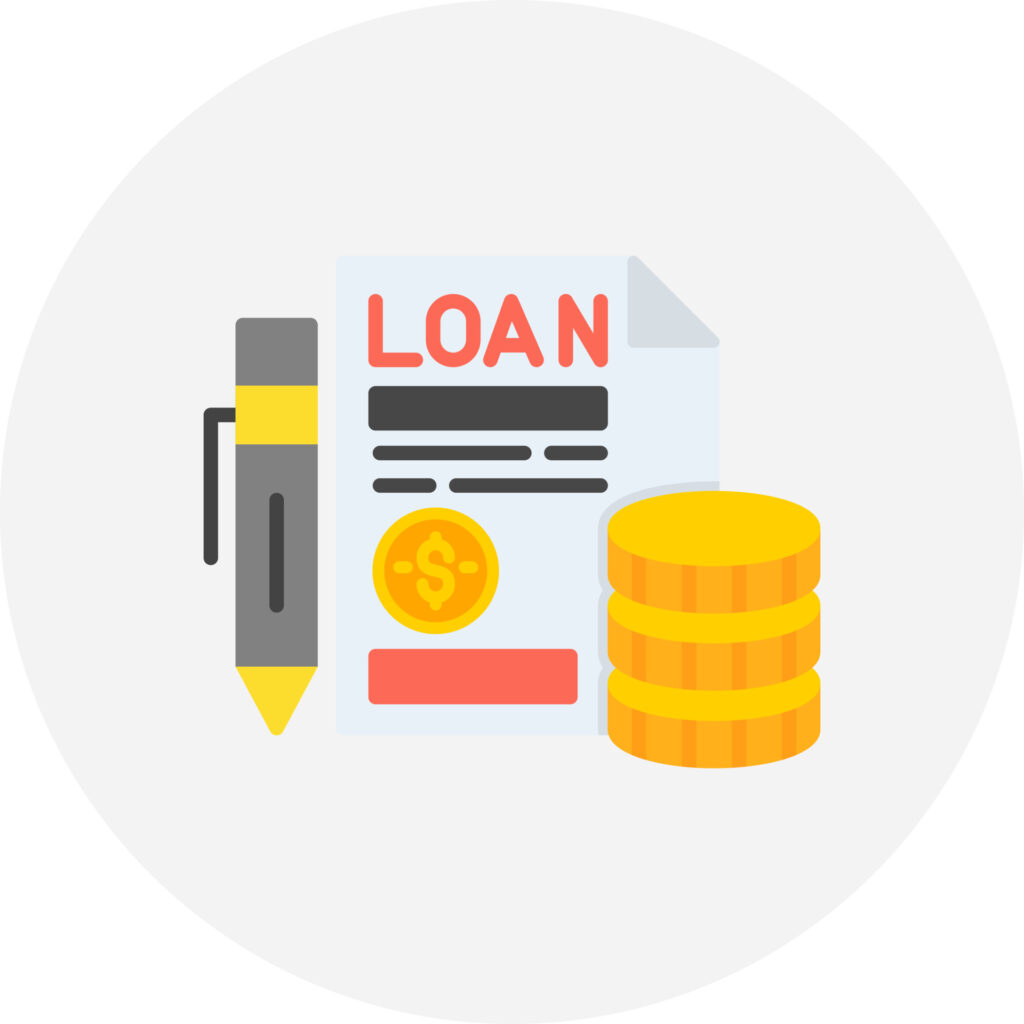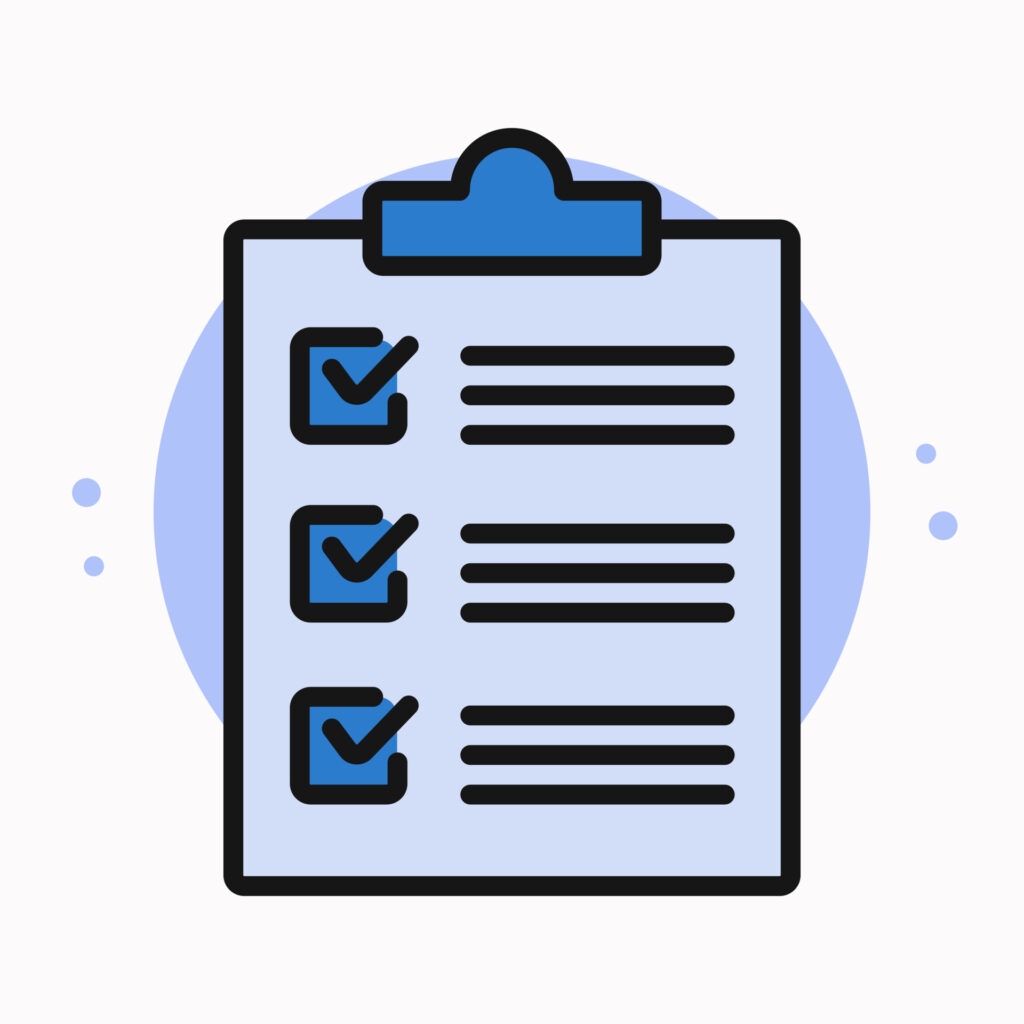Mortgages can be terrifying just by the simple mention of it. Most people rent because they find it easier, more convenient, move a lot, etc., but never realize how much of that rent money could go toward owning their own home.
The desire for a place to call your own is a powerful one. Owning a home represents a significant milestone, a springboard into a fulfilling future. We often envision ourselves surrounded by loved ones, creating a space filled with warmth, laughter, and memories that will last a lifetime.
However, the initial hurdle – securing a mortgage – can feel like an enigmatic labyrinth. Unfamiliar terminology, intricate procedures, and financial jargon can shroud the process in secrecy, leading to budgetary anxieties and a sense of paralysis.
There is a lot of fear about obtaining a mortgage because of initial upfront costs and the long, intimidating procedure most are unfamiliar with.
Well, fear not potential homeowner! This article will help remove any confusion and provide an easy, comprehensive understanding of the mortgage process. Armed with this knowledge, you will be fully prepared to confidently navigate the journey towards owning a home.
Before we get into the specifics let us explore the various loan types available and the qualifications necessary to secure one. By reviewing these options, you should be able to identify the perfect mortgage to suit your financial situation.
The total time it should take you from the start of the mortgage application is roughly 45 days on average.
Loan Types and Qualifications
Before delving into the intricacies of mortgage options, it is important to understand how lenders assess your ability to repay the loan. When considering qualifications, lenders assess your ability to repay the loan.
They will meticulously examine your financial health through factors, such as your credit score, debt-to-income ratio (DTI), employment history, and assets.

Prioritize improving your credit score beforehand by settling outstanding debts and maintaining a healthy credit utilization ratio, which is the amount of credit you use compared to your credit limit. A strong credit score translates to more favorable interest rates and loan terms.
When choosing a mortgage, knowing the key differences between a traditional mortgage and FHA is important. You can easily learn which one may benefit you more by reading the following:
Traditional Mortgages
Traditional lenders generally require a strong credit score (often above 670) which demonstrates your creditworthiness and responsible financial behavior.
These loans typically require a minimum down payment of 20%. This translates to a larger upfront investment but reduces your loan amount and the interest you pay over time.
A higher down payment also strengthens your application and allows you to avoid private mortgage insurance (PMI), which protects the lender in case of default.
- Benefits:
- Typically lower interest rates compared to FHA loans due to the lower risk for the lender.
- You can avoid PMI if you put down 20% or more.
- More flexibility with the type of property you can purchase (investment properties, vacation homes).
- Drawbacks:
- Requires a larger down payment, which can be a barrier for some first-time homebuyers.
- Stricter credit score requirements can exclude borrowers with lower scores.
FHA Loans
FHA loans allow for a lower down payment, as low as 3.5%. This makes homeownership more accessible for those with limited savings. FHA loans are often more lenient on credit scores.
Minimum requirements can be as low as 580, but a higher score (around 640) typically results in a more favorable interest rate.
- Benefits:
- Easier to qualify for with a lower down payment and more flexible credit score requirements.
- Ideal for first-time homebuyers or those with limited savings.
- Drawbacks:
- Typically higher interest rates compared to conventional loans due to the government’s involvement and assumed risk.
- Requires mandatory mortgage insurance (MI) which can add to the overall cost of the loan. MI can be removed once you reach a certain amount of equity in your home.
- Primarily for financing primary residences (not investment properties or vacation homes).
Which Should You Choose
- Choose a Traditional Loan if:
- You have a strong credit score and a significant down payment (20% or more).
- You want to avoid PMI and potentially secure a lower interest rate.
- You are open to financing various property types (primary residence, investment property, etc.).
- Choose an FHA Loan if:
- You have a lower credit score or limited savings for a down payment (3.5% minimum).
- You are a first-time homebuyer looking to finance your primary residence.
- You prioritize affordability over potentially lower interest rates.
Remember, consulting a mortgage professional can help you assess your financial situation and determine the most suitable loan option for your needs. They can guide you through the application process and answer any questions you may have.
By comprehending the advantages and disadvantages of each option, you can readily determine which one best aligns with your financial situation for homeownership.
Choosing Your Lending Partner
When securing a mortgage, an important decision is selecting the right lender. Should you go with a traditional bank or explore the option of a credit union? Both offer distinct advantages and disadvantages, and the best choice hinges on your specific circumstances.

Regardless of where you do your primary banking, always compare rates with a couple of different lenders to get the best deal.
Banks are for-profit businesses owned by shareholders who expect a return on their investment. Their priority is to generate profits for the shareholders.
Credit Unions
It is easy to remember one major difference between a credit union and a bank which is that credit unions are non-profit cooperatives owned by their members.
Members are essentially co-owners who have a say in how the credit union is run. The goal is to serve the best interests of the members, not maximize profits.
This structure translates to several potential benefits:
- Potentially Lower Rates and Fees. Credit unions prioritize member benefits over maximizing profits. This can lead to lower interest rates and closing costs on mortgages compared to banks.
- Personalized Service. Credit unions often boast a more personal touch compared to larger banks. You might develop a relationship with a loan officer who understands your needs and advocates for you throughout the process.
- Focus on First-Time Homebuyers. Some credit unions cater specifically to first-time homebuyers, offering programs with lower down payment requirements or more flexible qualifying criteria.
However, credit unions also have limitations:
- Limited Loan Options. Credit unions might have a smaller portfolio of loan products compared to large banks. This may restrict your access to specific loan types or government-backed programs like VA loans.
- Fewer Branches and ATMs. Credit unions often have a smaller physical footprint compared to banks. This could be inconvenient if you require frequent in-person visits or rely heavily on ATMs.
| Feature | Banks | Credit Unions |
|---|---|---|
| Ownership | For-profit | Non-profit, member-owned |
| Goal | Maximize profits for shareholders | Serve the best interests of members |
| Fees | May be higher | Tend to be lower |
| Interest Rates | May be lower on savings accounts and higher on loans | May be higher on savings accounts and lower on loans |
| Membership | Open to everyone (generally) | Requires meeting membership qualificationspen_spark |
Banks
Banks offer a different set of advantages and disadvantages:
- Wider Range of Loan Products. Banks typically offer a broader selection of mortgage products, including government-backed loans (FHA, VA, USDA) and jumbo loans for high-value properties.
- Established Infrastructure. Large banks often have extensive branch networks and ATM access, providing greater convenience for in-person communication or managing your finances.
- Strong Financial Backing. Major banks generally have robust financial resources, potentially offering more stability and security for your loan.
On the other hand, banks may have drawbacks for some borrowers:
- Potentially Higher Rates and Fees. As profit-driven institutions, banks may offer less competitive rates and fees compared to credit unions.
- Less Personalized Experience. Due to their larger size, banks might prioritize efficiency over personalized service. You might encounter less flexibility or tailored solutions.
Ultimately, the best approach is to research and compare rates, fees, and loan options offered by both credit unions and banks. Do not hesitate to reach out to loan officers at each institution to discuss your specific needs and get personalized quotes before making your decision.
Documents and Preparation
Once you have chosen a loan type, it is time to assemble your application. Here is what you can expect the required documents to be:
- Pay Stubs. These documents, typically covering the past 30-60 days, verify your income and employment status. Lenders assess your income stability to ensure you have a steady flow of income to repay the loan.
- Tax Returns. Tax returns, usually for the past two years, provide a more comprehensive picture of your income. They also reveal your tax obligations and any additional income sources like self-employment income or rental properties.
- Bank Statements. Bank statements, typically for the past 2-3 months, showcase your savings history and overall financial management. Lenders want to see a consistent pattern of saving and responsible use of funds. They may also look for large deposits, especially if they are used for your down payment, and may require a gift letter explaining the source if it comes from another person.
- Proof of Employment. This could be a letter from your employer verifying your current position, salary, and length of employment. It further strengthens your income verification and employment stability.
Credit Check
Imagine a credit check as a lender peeking at your financial report card – your credit report. This report details your borrowing history, including credit card usage, loans, and payment habits. The lender uses this information to assess your creditworthiness, which is your ability to repay borrowed money responsibly.

A credit report helps verify the information you provide on your mortgage application, ensuring accuracy.
There are two main types of credit checks performed during the mortgage process:
- Soft Inquiry. This is a preliminary check that does not impact your credit score. It allows lenders to get a quick glimpse at your creditworthiness during pre-approval.
- Hard Inquiry. This is a more thorough check that does leave a temporary mark on your credit score. However, multiple hard inquiries within a specific timeframe (typically 45 days) for mortgages are counted as a single inquiry, minimizing the impact.
Credit checks are vital for lenders because they assess risk and verify information to ensure accuracy. A good credit score indicates a responsible borrower, lowering the risk of defaulting on the mortgage. This translates to better loan terms and interest rates for you.
Tips for a Healthy Credit Score
A credit check is a standard step towards achieving your dream of homeownership. By understanding these factors and taking proactive steps to manage your credit score, you can approach this hurdle with confidence and potentially qualify for a better mortgage interest rate, saving you money in the long run.
Getting a mortgage pre-approval often involves a credit check, which can feel daunting. Here is how you can ensure your credit score is in tip-top shape to face this hurdle with confidence:
- Be a Payment Superhero. This is your ultimate credit score superpower! On-time payments consistently across all your bills (credit cards, loans, utilities, etc.) have the biggest impact on your score. Make sure you pay your bills in full and by the due date to keep your credit score healthy.
- Credit Utilization. Imagine your credit limit as a magic treasure chest. Ideally, you only use a small portion of it. This utilization ratio, the amount of credit you are using compared to your limit, significantly affects your score. Aim to keep it below 30% for a good score. So, for a $10,000 credit limit, try to keep your balance below $3,000.
- New Credit Inquiries. Every time you apply for a new credit card or loan, it can leave a temporary mark on your credit report. While a mortgage inquiry for pre-approval is okay, avoid applying for unnecessary credit products close to your home-buying journey. This can help minimize the impact on your score.
Remember, a credit check is a necessary step in securing your dream home. By understanding the process and taking steps to maintain a healthy credit score, you can approach this hurdle with confidence.
Related Article: “Credit Scores- Do They Matter?“
Money Needed for Upfront Costs
Imagine a down payment as your initial investment in the property. It is a portion of the purchase price you pay upfront, typically ranging from 3% to 20% of the home’s value. This can be the hardest part and where most people fail early on, saving.
Here is why a down payment matters and why you need to save for one:
- Lower Mortgage Amount. A larger down payment translates to a smaller loan amount. This means you will borrow less, potentially reducing your monthly mortgage payment and the total interest paid over the loan term.
- Stronger Application. A substantial down payment demonstrates your financial commitment to the purchase, strengthening your application in the eyes of the lender. This could lead to better loan terms and a more competitive interest rate.
Closing costs are a collection of fees associated with finalizing the purchase of your home. These can add up quickly and are typically borne by the buyer, although some negotiation with the seller may be possible.
Here are some common closing costs to consider:
- Loan Origination Fee. A fee charged by the lender for processing your mortgage application.
- Appraisal Fee. The cost of an independent professional appraising the home’s value to ensure it aligns with the purchase price.
- Title Search and Insurance. Fees associated with researching the property’s ownership history and insuring you against any potential title defects.
- Escrow Fees. Charges for a neutral third party holding onto funds (like down payment and closing costs) until the closing is complete.
- Taxes. You may be responsible for prorated property taxes and homeowner’s insurance premiums from the closing date onwards.
Potential Additional Fees
There might be other additional fees depending on your specific situation, such as:
- Private Mortgage Insurance (PMI). If your down payment is less than 20% of the purchase price, you might be required to pay PMI, which protects the lender in case of default.
- Discount Points. These are upfront fees paid to the lender in exchange for a lower interest rate on your mortgage.
Down payments, closing costs, and various fees are essential parts of the homebuying equation. By being informed about these costs and strategically planning your finances, you can approach the closing table with confidence.
Remember, consulting with a mortgage professional can help you understand your specific situation and estimate the total cost of buying your dream home.
Pre-Approval Process
A pre-approval for a mortgage is like a preliminary green light from a lender. It estimates the amount of money you are eligible to borrow for a home purchase. It is essentially a checkup on your financial health to see how much house you can afford.
Here is why getting pre-approved is a smart move:
- Shop with Confidence. Knowing your borrowing power upfront allows you to focus on houses that realistically fit your budget. No more falling in love with a dream home that is beyond your reach.
- Stand Out to Sellers. In a competitive market, a pre-approval letter shows sellers you are a serious buyer and ready to move quickly. It gives your offer a competitive edge over others who have not taken this step.
- Smoother Process. The pre-approval process gathers most of the financial documents a lender needs. Once you find your dream home, the final mortgage approval is often faster and smoother because most of the groundwork is already done.
Think of it like this: getting pre-approved is like test-driving your finances before you hit the dealership (the housing market). It gives you valuable information and a head start on securing your dream home.
The CFPB provides a detailed guide on what documents you may need during the application process.
Consumer Financial Protection Bureau
Throughout the mortgage application process, a valuable resource stands by your side: The Consumer Financial Protection Bureau (CFPB). Established in 2011, the CFPB serves as a watchdog agency, ensuring fairness and transparency in the financial marketplace for consumers like you.
Imagine a referee overseeing a game, ensuring fair play for both sides. The CFPB functions similarly, safeguarding consumers in their financial dealings.
Here are some key areas where the CFPB steps in:
- Rule-Making. The CFPB establishes clear rules and regulations that financial institutions must adhere to when offering mortgages, credit cards, and other financial products. These regulations protect consumers from unfair practices like deceptive advertising or predatory lending terms.
- Supervision. The CFPB supervises banks, lenders, and credit reporting agencies to identify and address potential violations of consumer financial laws.
- Complaint Resolution. If you encounter problems with a financial institution, the CFPB provides a platform to submit complaints. They work to resolve these issues directly with the lender and ensure you receive a fair outcome.
- Consumer Education. Empowering consumers is a cornerstone of the CFPB’s mission. They offer a wealth of educational resources to help you navigate financial products, understand your rights, and make informed decisions.
How Can the CFPB Help You During the Mortgage Process?
The CFPB is a valuable ally throughout your mortgage journey. After reading this article consider visiting their website for extremely detailed information and any questions you still have. Here is how they can be of assistance:
- Understanding Loan Options. The CFPB website provides clear explanations of various mortgage types, including traditional and FHA loans. This information empowers you to compare options and choose the one that best suits your needs.
- Shopping for a Mortgage. The CFPB offers resources to help you compare lenders and loan terms. Their guides can equip you with the knowledge to ask the right questions and negotiate effectively.
- Understanding Loan Disclosures. Mortgage documents can be dense and confusing. The CFPB provides tools to decipher these disclosures, ensuring you understand the terms and conditions of your loan before signing on the dotted line.
- Resolving Disputes. If you encounter issues with a lender during the application process, the CFPB can assist with filing a complaint and advocating for a fair resolution.
By leveraging the CFPB’s resources and protections, you can navigate the mortgage application process with greater confidence, ensuring a smoother and more informed homebuying experience. They will be the right people to talk to aside from talking to a friend or family member who is familiar with the mortgage process.
**Disclaimer** I am an educated enthusiast of financial literacy and money management. The information provided in this article is for educational purposes only and should not be considered financial advice. I am not a licensed financial advisor, planner, or counselor.
References:
